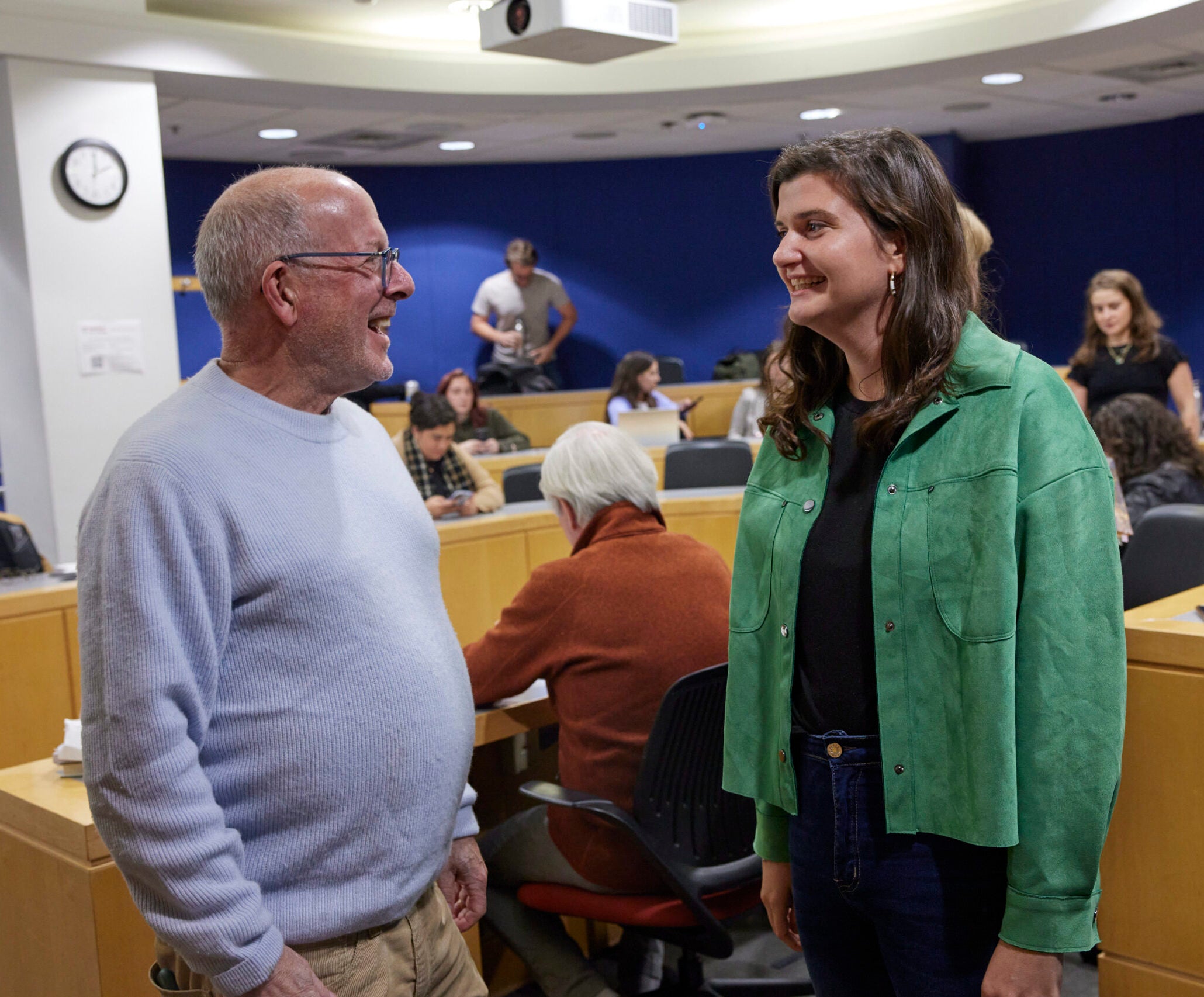In fall 2023, the Center for Health Communication at Harvard Chan School launched a new 2.5-credit course called SBS 285 | Practical Communication Strategies and Tactics for Influencing a Healthier World, taught by communications pro Andy Burness. We caught up with SBS 285 student Kendra Sterneck, who is completing her Master’s in Public Health in Social and Behavioral Sciences with a concentration in humanitarian studies, to find out more about what she took away from the experience.
Why did you choose this course?
The name – and the word “practical” in it – immediately caught my attention. I want to leave Harvard Chan School having learned hard skills, including communication skills. I was also really excited about learning from Professor Andy Burness, who runs a global communications firm in Washington D.C. and has a lot of practical experience doing advocacy and communications work.
What has this course taught you?
I learned how to get a concise point across and stay on point as well as how to create a well thought out message. I will always hear Professor Burness’ voice in my head ask me, “What’s your message?”
What lesson surprised you the most?
The translation lesson, in which we learned how to “translate” science so that everyone can understand it, especially the communities you are trying to reach. We analyzed one-minute videos, posters, and social media posts that were powerful and accessible. It is something I’m really interested in because I’m pursuing a career in public health practice, not academia.
I also enjoyed hearing Professor Burness talk about the unexpected messenger. When you are trying to create change, you have to find the best person to deliver your message. Sometimes that’s not you and sometimes it is not even the most obvious person. You have to meet people where they are and sometimes that requires you to find someone who can best connect to the people whose mind you are trying to change.
How was this course structured?
Throughout the course, each student is expected to put together a communications strategy. You pick the topic – something you want to address or a policy you wish to change – and then each week you work with fellow students on a different part of the plan: The executive summary, a message deck, a media plan, a translation piece, etc. Often, guest speakers would give us feedback too. It was very interactive, and I can say that I was never bored.
My project was to ask the Greek Ministry of Migration and Asylum to lift restrictions on access to services in refugee camps. It was a really good exercise and it made us think about creating a cohesive communications strategy, which is something we might have to do in our future jobs.
What was the toughest assignment?
For one of our weekly assignments, we had to write an op-ed. I found it challenging because you have limited space and need to make sure your case is as strong as possible. I had to think about the best way to get my message across. We worked a lot in class about writing the hook. I tried to include a story about someone who had been impacted by the Greek policy and why it was important that the Ministry of Migration and Asylum reverse it.
Who was your favorite guest speaker?
Jim O’Connell, director of the Boston Healthcare for the Homeless program. It was wonderful to hear him share his story and explain what the program has done for the homeless population in the city.
Also, Lori Lightfoot, the former mayor of Chicago, came to our class twice and we got to ask her how she likes to be approached and what type of advocacy and communications strategies work with her. She told us about the stories and site visits that were powerful for her.
How will this course help you in your career?
This is one of the best and most helpful classes I took. I think much more about what I’m trying to say and who I am talking to than I did before. I also learned the importance of taking formal research or academic work and translating it into digestible information for your specific audience.
What tips do you have for students interested in taking this course next year?
Pick something you are passionate about because you are going to deep dive into that topic, and it is a lot more fun if it is something you are passionate about. And I would encourage everyone to engage during class – I think you get a lot out of this course when you put a lot into it, because you get a lot of great feedback from the teaching team.




